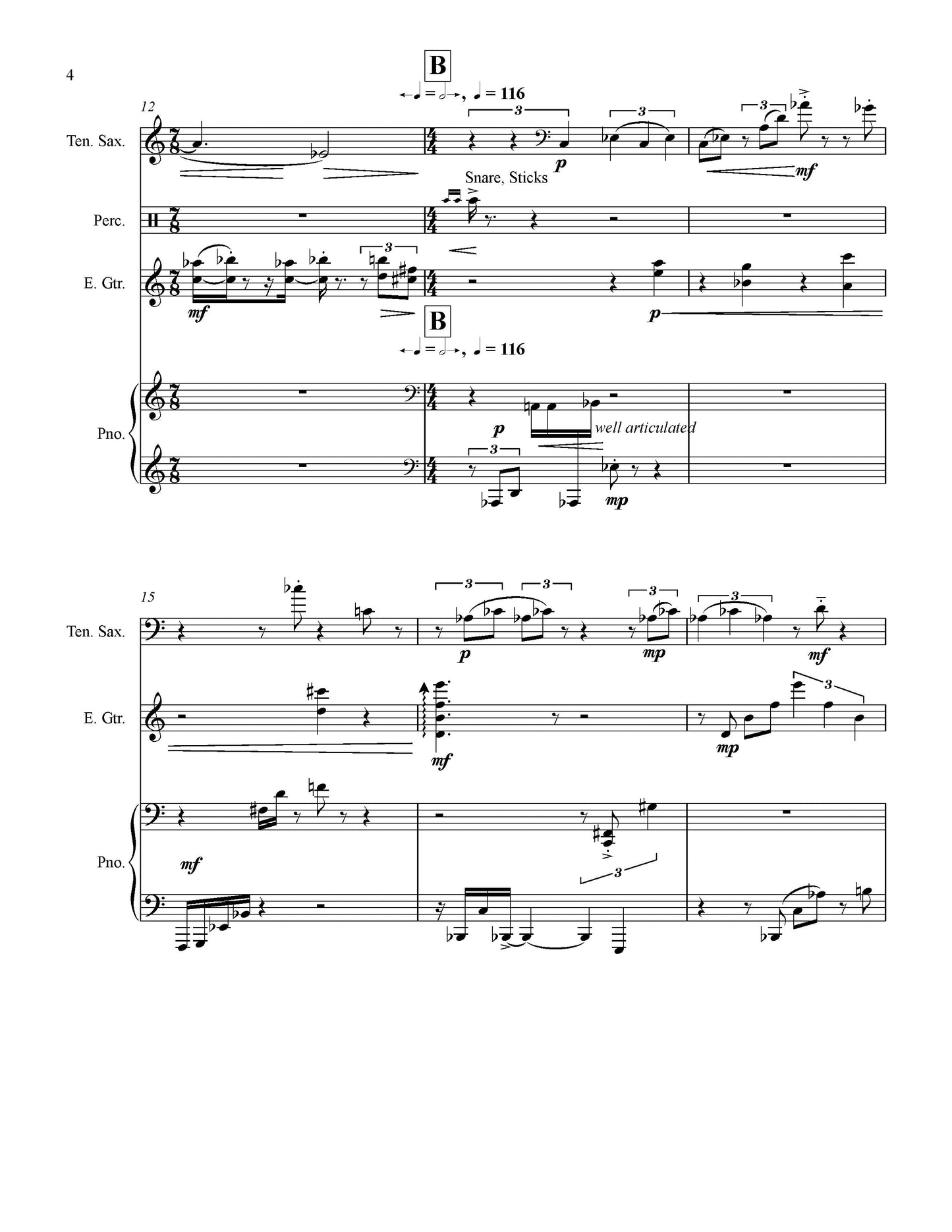Ross Bauer » BUST A FLAME
BUST A FLAME
BUST A FLAME
Tenor Saxophone, Electric Guitar, Piano, and Percussion
Composer's Note:
Bust a Flame, composed for Flexible Music, was written during February of 2009. It's dedicated with love to my son, Isaac.
I found my way into the language of the piece gradually, a language largely conditioned by Flexible Music's unusual instrumentation of tenor saxophone, guitar, piano and percussion. This instrumentation, so suggestive of a jazz group, steered me further in a direction that I had been increasingly pursuing: trying to get some of the vitality and spontaneity of the music that I first loved and played into the music I've been composing. So I decided to take advantage of Dan Lippel's considerable skill and experience as an electric guitarist and to use what amounts to a drum set instead of the percussion instruments I've used in the past. The 'drumsetness' of the percussion part comes into focus little by little until it emerges completely rather late in the piece.
Each member of the ensemble is featured in turn: saxophone, piano, guitar and drums. These passages don't always take the form of solo and accompaniment, but more often, the featured instrument dominates in one way or another. The opening section is heavily weighted toward the saxophone. The slow, mysterious music of the opening is followed by prematurely fast and intense music emphasizing repeated notes and percussion. The tempo slows a bit as the guitar and percussion establish a groove over which the saxophone continues to play.
The piano becomes increasingly prominent leading to a short, lyrical solo section. The guitar then begins to gradually take over -- first in a duet with the piano and then in a fast, evenly paced trio where it plays in unison with the glockenspiel and in canon with the guitar. Before this passage has a chance to culminate in an arrival, things fall apart (high piano and glock. play bursts of activity in their highest registers) and the guitar takes over from the ruins. Unpitched percussion and guitar form an intense duo and, after the piano re-enters, a series of exchanges take place. These are very much like the 'fours' you can hear between soloists and drums in jazz, only here they're 'fives.'
After the drum solo, slow music returns and the saxophone and guitar play in unison for the first time in a long melody accompanied by cymbals and then piano. As the tempo slows, the music becomes more and more intense.
Authored (or revised): 2009
Duration (minutes): 13
First performance: Flexible Music, Tenri Cultural Institute, New York City, March 27, 2009
Book format: Score + 3 parts
SKU
ACA-BAUR-001Subtotal
$44.00Couldn't load pickup availability










